
Bruce Bower has written about the behavioral sciences since 1984. He often writes about psychology, anthropology, archaeology and mental health issues. Bruce has a master's degree in psychology from Pepperdine University and a master's degree in journalism from the University of Missouri. Following an internship at Science News in 1981, he worked as a reporter at Psychiatric News, a publication of the American Psychiatric Association, until joining Science News as a staff writer. In 1996, the American Psychological Association appointed Bruce a Science Writer Fellow, with a grant to visit psychological scientists of his own choosing. Early stints as an aide in a day school for children and teenagers with severe psychological problems and as a counselor in a drug diversion center provided Bruce with a surprisingly good background for a career in science journalism.

Trustworthy journalism comes at a price.
Scientists and journalists share a core belief in questioning, observing and verifying to reach the truth. Science News reports on crucial research and discovery across science disciplines. We need your financial support to make it happen – every contribution makes a difference.
All Stories by Bruce Bower
-
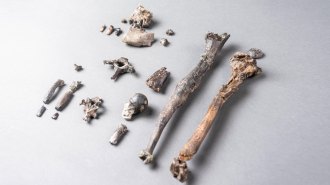 Humans
HumansFossils suggest tree-dwelling apes walked upright long before hominids did
A partial skeleton from an 11.6-million-year-old European ape still doesn’t answer how hominids adopted a two-legged gait.
-
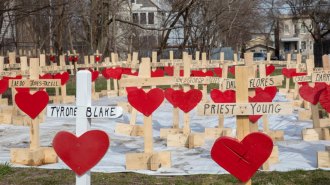 Science & Society
Science & SocietyCan neighborhood outreach reduce inner-city gun violence in the U.S.?
While mass shootings grab U.S. headlines, the steady scourge of inner-city gun violence gets less attention — and fewer solutions.
-
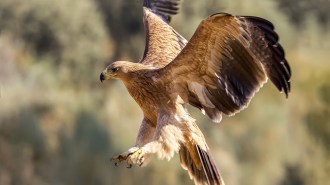 Archaeology
ArchaeologyA toe bone hints that Neandertals used eagle talons as jewelry
An ancient eagle toe bone elevates the case for the use of symbolic bird-of-prey pendants among Neandertals, researchers say.
-
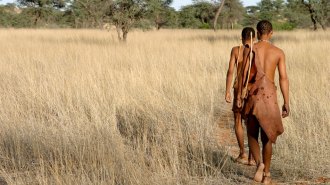 Humans
HumansHumans’ maternal ancestors may have arisen 200,000 years ago in southern Africa
New DNA findings on humankind’s maternal roots don’t offer a complete picture of how and when Homo sapiens emerged.
-
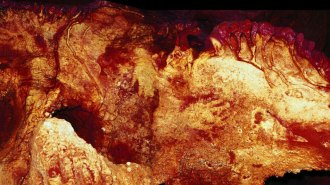 Humans
HumansDating questions challenge whether Neandertals drew Spanish cave art
A method used to date cave paintings in Spain may have overestimated the art’s age by thousands of years, putting its creation after Neandertal times.
-
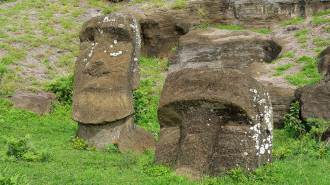 Humans
HumansQuarrying stone for Easter Island statues made soil more fertile for farming
Easter Island’s Polynesian society grew crops in soil made especially fertile by the quarrying of rock for large, humanlike statues, a study suggests.
-
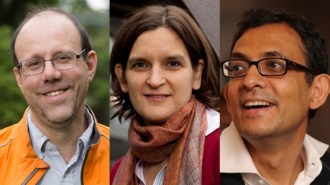 Science & Society
Science & SocietyEconomics Nobel goes to poverty-fighting science
Three scientists share the Nobel Memorial Prize in Economic Sciences for developing real-world interventions for tackling poverty.
-
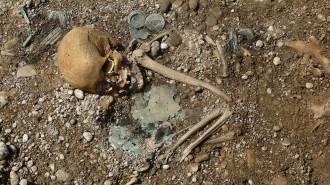 Archaeology
ArchaeologyAncient European households combined the rich and poor
Homes combined “haves” and “have-nots” in a male-run system, suggests a study that challenges traditional views of ancient social stratification.
-
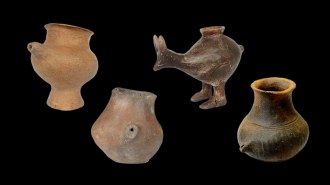 Archaeology
ArchaeologyBaby bottles may go back millennia in Europe
Europe’s early farmers used spouted vessels to wean infants, an analysis of residue from animal milk left in the containers suggests.
-
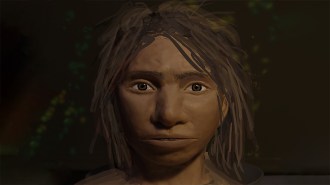 Humans
HumansAncient DNA reveals the first glimpse of what a Denisovan may have looked like
A controversial technique reconstructs a teenage Denisovan’s physical appearance from genetics.
-
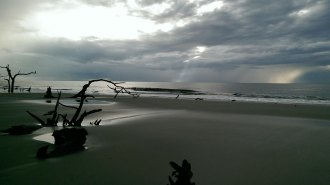 Humans
HumansAn island grave site hints at far-flung ties among ancient Americans
Great Lakes and southeastern coastal hunter-gatherers had direct contact around 4,000 years ago, a study suggests.
-
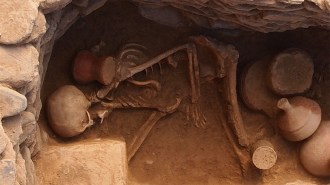 Humans
HumansDNA indicates how ancient migrations shaped South Asian languages and farming
Farming in the region may have sprung up locally, while herders from afar sparked language changes.